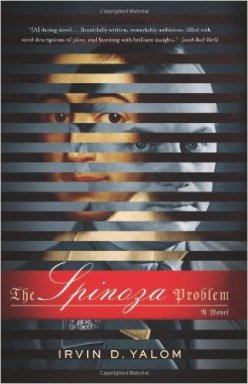 Evernote is a flexible electronic filing cabinet available for desktops, phones, and tablets. It means I can easily create or store information wherever I am. And equally importantly, because the information is stored electronically, I can easily search it and track information down. I can use it to type documents or save handwritten notes on screen; it will receive scanned documents or photographs; and I can even use it to create dictated notes or store other sound files. And zapping webpages into it (in a variety of save formats) or those important emails, is a synch.
Evernote is a flexible electronic filing cabinet available for desktops, phones, and tablets. It means I can easily create or store information wherever I am. And equally importantly, because the information is stored electronically, I can easily search it and track information down. I can use it to type documents or save handwritten notes on screen; it will receive scanned documents or photographs; and I can even use it to create dictated notes or store other sound files. And zapping webpages into it (in a variety of save formats) or those important emails, is a synch.
Because security of information is important to me, I am able to use the internal encryption system built into it to lock sensitive documents.
I use Evernote in a multitude of ways. To give you some idea of its flexibility and usefulness, I have listed the ways below. They are not listed in any order of importance. Continue reading “Saving Stuff for Work and Pleasure (19 Uses for Evernote)”

 Imagine the scene. It has been a wearying time. You left your hotel room at 11:00am on the final day of your much-needed holiday. You spent a final few hours trying to enjoy the last dregs of the Mediterranean town you have inhabited for a week, but at the back of your mind a voice is chanting with increasing volume: “I just want to get back home …”
Imagine the scene. It has been a wearying time. You left your hotel room at 11:00am on the final day of your much-needed holiday. You spent a final few hours trying to enjoy the last dregs of the Mediterranean town you have inhabited for a week, but at the back of your mind a voice is chanting with increasing volume: “I just want to get back home …” Since the General Election on June 8, 2017, and the tragedy of the Grenfell Tower Fire, I have been listening to and watching media broadcasts more than usual, and have noticed two significant changes in language use.
Since the General Election on June 8, 2017, and the tragedy of the Grenfell Tower Fire, I have been listening to and watching media broadcasts more than usual, and have noticed two significant changes in language use. I thought I could easily survive without it. I was wrong. I could survive, but it wasn’t easy. In fact, I was surprised about how hard I found it. It should have been a doddle. It is not as if an iPhone has been part of my life for most of it.
I thought I could easily survive without it. I was wrong. I could survive, but it wasn’t easy. In fact, I was surprised about how hard I found it. It should have been a doddle. It is not as if an iPhone has been part of my life for most of it. Although a short book, this is a very important read. Timothy Snyder is an American historian who is able to pull together lessons from history on how to recognise and resist dictatorships and facism. Some reviewers feel that it is essential reading for all Americans. I disagree. I think it would be good if people of all nations could read it and learn from it.
Although a short book, this is a very important read. Timothy Snyder is an American historian who is able to pull together lessons from history on how to recognise and resist dictatorships and facism. Some reviewers feel that it is essential reading for all Americans. I disagree. I think it would be good if people of all nations could read it and learn from it.
 Siri is Apple’s virtual personal assistant for the iPhone and Apple computers with the latest operating system. It can take dictation for messages, put appointments in your calendar, tell you the latest hockey score, or give you directions to the nearest Indian restaurant.
Siri is Apple’s virtual personal assistant for the iPhone and Apple computers with the latest operating system. It can take dictation for messages, put appointments in your calendar, tell you the latest hockey score, or give you directions to the nearest Indian restaurant. In my first two postings on Thomas Hardy’s poem ‘The Voice’ about his dead wife Emma’s calling to him
In my first two postings on Thomas Hardy’s poem ‘The Voice’ about his dead wife Emma’s calling to him  This book has much to commend it, despite the ending which I found disappointing.
This book has much to commend it, despite the ending which I found disappointing.